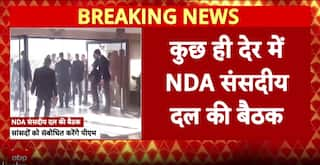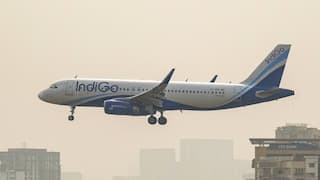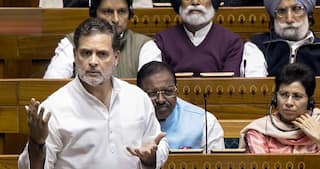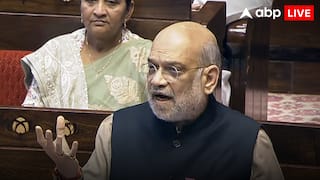Explorer
Delhi: CM Kejriwal opens Signature Bridge; Here is all about the iconic project
Two elevators from the base of the pylon will carry tourists to the View Gallery at the top, from where people can get a bird-eye view of the city.

New Delhi: The iconic Signature Bridge on the Yamuna River in New Delhi was inaugurated by chief minister Arvind Kejriwal today after a long wait of fourteen years. The bridge will be thrown open for public on Monday. The Signature Bridge will be India’s first asymmetrical cable-stayed bridge. Here is all you need to know about the iconic bridge: Specialty: The pillar of the bridge which is visible from far away, known as pylon, is one of the most striking features of it. A pylon is a bar or rod that supports some structure, like a bridge or a highway overpass. The length of the pylon is 154 metres which is twice the length of Qutub Minar. Two elevators from the base of the pylon will carry tourists to the the View Gallery at the top, from where people can get a bird-eye view of the city. The gallery can accommodate 50 people at one time. The elevators area likely to be operational in two months, an official said. The total length of the bridge is 675 meters and width is 35.2 meters. The name: Former Delhi CM Sheila Dixit wanted that other than the Lotus Temple, Delhi should be recognised for more architectural examples. It was then decided to lay off a bridge from the vertical pylon. When viewed from far, the pylon appears to be in the ‘Namaste’ posture. Due to its special shape, the ‘Signature’ bridge would welcome people entering the city with a ‘Namaste’. Connectivity Initially, the two-laner bridge made for the up keeping of the Wazirabad barrage was the only way for the people in north east Delhi to commute to Karnal bypass. It was also becoming necessary to reduce traffic load from the 60-year-old bridge. Therefore the Signature Bridge was made. Beneficiaries: The bridge built on the Yamuna will connect people of north east part of the national capital with Karnal By-pass. It will provide a relief to the people residing in areas like Yamuna Vihar, Gokulpuri, Bhajanpura, Mukherjee Nagar, Timarpur, Buradi and Azadpur who have to commute regularly to the Karnal bypass via Wazirabad bridge. They can now complete the journey within minutes, for which they earlier had to travel from 30 minutes to half-an hour. The bridge will share the burden of vehicular traffic currently borne by the Wazirabad bridge. Cost: The proposal for the bridge, mooted in 2004, received approval of the Delhi Cabinet in 2007. It was initially expected to be completed at a modified estimate of Rs 1,131 crore for the Commonwealth Games, held in Delhi in October 2010. In 2015, the cost of the project rose to Rs 1,594 crore. Reportedly, the bridge was proposed for the first time as early as in 1997 at an initial cost of Rs 464 crore.
Follow Breaking News on ABP Live for more latest stories and trending topics. Watch breaking news and top headlines online on ABP News LIVE TV
Read more

Sayantan Ghosh
Opinion





































